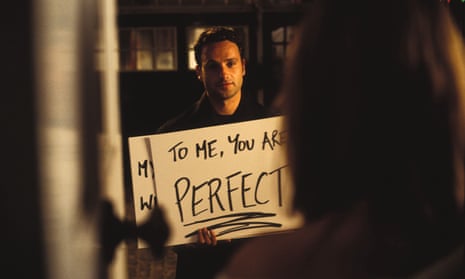A man set up a piano in public vowing “to play non-stop until the love of his life returns to him”. He told the Bristol Post it was his “last throw of the dice” to win back the heart of the girl who changed his life”. The article describes him as “heartbroken”. That’s a shame, it really is, but unfortunately, there is nothing cute or romantic about a man making loud, public demands for a woman’s attention, time and affection.
The piano player’s vigil has ended – after he says he was attacked early yesterday morning. Obviously nothing about his conduct warrants that sort of reaction, but it’s time that both men and the media stopped presenting such entitled, creepy behaviour as “cute” or deserving of sympathy.
Rejection is painful, but that pain doesn’t give anyone licence to disregard another individual’s assertion of boundaries – which is what rejection is: a drawing of lines excluding us. People are allowed to draw up whatever boundaries they like in terms of who they wish to spend time with or date. As adults we should learn to accept this and move on. But men have long been taught to disregard boundaries, as any glance at statistics of street harassment demonstrates.
People learn behaviours as they grow up in many ways, and it’s not just parents but society and pop culture that teach us what’s acceptable. And these things teach us that such entitled behaviour is not only welcome, but a normal part of relationships. One of the highest rated sitcoms of all time, The Big Bang Theory, has a lead female character outline the basis of her romantic relationship with the male lead by saying: “He started to slowly wear me down.” Cue laughter. On another occasion: “He didn’t trick me, he just wore me down.” More laughs.
Instead of being welcomed willingly into her life, he had to “wear” down her boundaries until she felt forced to let him in. That’s not a love story, that’s a home invasion. Films like Love Actually, The Notebook, and many others tell us that men’s persistence in the face of rejection is admirable. It’s a “struggle” that a heterosexual man must go through to “get the girl”.
Showing this boundary crossing behaviour as acceptable, instead of a problem, tells men it is OK in real life. As the academic Julia Lippman noted, “depictions of these romanticized pursuit behaviors can in fact have a clear and negative impact, in that they can lead people to see stalking as a less serious crime than they otherwise would”.
Much of the research she summarises indicates how the media can play into myths about stalking – giving rise to victim-blaming (“she’s playing hard to get”), sympathy instead of condemnation, and other erroneous beliefs that lead to men’s harmful behaviours. “People may fail to take stalking seriously because they endorse ‘myths’ about stalking.” After all, the TV and film industry keeps telling us this is romantic because leading men do it all the time. But just because such behaviour has a laughter track accompanying it doesn’t make it alright.
Instead of teaching men to respect women’s boundaries, however painful rejection may be, the media teach us that our feelings, our sense of entitlement, matter more. As men, we’re told to disregard women as people and view them instead as goals to pursue, view rejection as an obstacle to overcome, view boundaries as fences to wear down. Women become property, not partners.
We can do better than this.
For a start, perhaps we can stop calling grown-up, adult women “girls”? Show them the respect they deserve. Second, it doesn’t matter how long a relationship lasted, behaviour such as this is creepy. Piano man may have dated this woman for a few months only, but his public demands for her “love” would still be wrong if they had been happily married for 10 years.
The worst part about media interest in such stories is that it acts as a “poisoned Cupid” in tracking down women who have rejected such wailing Romeos. Women have their boundaries negated again, this time by news sites wanting to know more, get more hits. Playing along with these attention-seeking men only makes it harder for others to accept rejection like mature adults. Media attention reinforces the idea that such heartbreak is deserving of a hero’s write-up.
The media have a responsibility to refrain from indulging such entitlement. Stop calling these men heartbroken. Stop listening to their whining for attention. Start calling out this behaviour for what it is: entitled men who refuse to take no for an answer.
